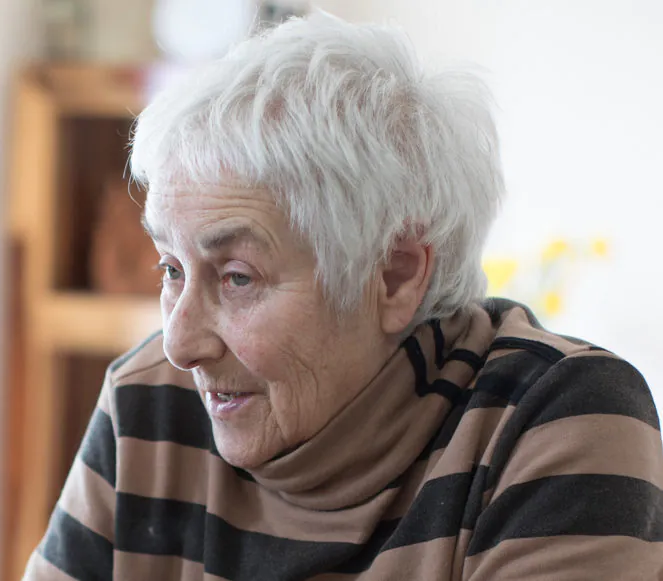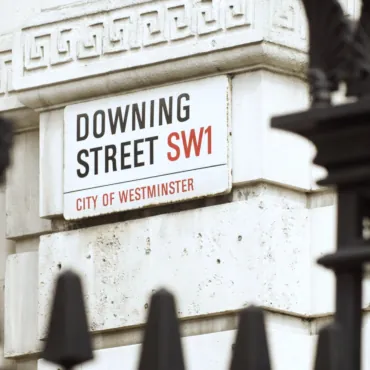“British Jews are afraid to appear on the streets of London and other cities.” Not only residents of neighborhoods with traditionally Jewish populations, but also many Londoners have spoken out about it. I and others who didn’t see what happened on Saturday in London – who weren’t insulted on the street or on the subway afterward – might have taken it as an exaggeration if it weren’t for the endless accounts of what people who wear kepas, or just those with a Jewish appearance, have had to deal with over the past few days. I have a 22-year-old girl visiting me right now who was followed in London by a car with a Palestinian flag that read “jewish whore!”. This is also what many radio station listeners are telling callers on the air.
According to CST, an organization that records incidents of anti-Semitism in the UK, anti-Semitic antics have skyrocketed in the wake of pro-Palestinian demonstrations in London and elsewhere in the country. Compared to the same period last year (Oct. 7-20), the number is up 651%. Since Saturday’s rallies, 533 such incidents have been recorded.
By many, the inaction of the London police in not detaining participants shouting “jihad” while some pro-Israel demonstrations were disrupted was seen by many as indulging pro-Palestinian activists. On the same Saturday (Oct. 21), for example, police “recommended” that the group Christians Against Anti-Semitism, which calls for “praying for Israel,” shut down its demonstration, warning that participants could get hurt because the action would be seen as anti-Muslim. Police also suppressed a rally organized by pro-Israel activists. Buses carrying pictures of child hostages were wrapped up by police from the center after pro-Palestinian protesters began shouting insults. “To avoid a riot.”
It was not only Jewish and pro-Israeli organizations and activists who began sounding the alarm after the bacchanalia at Saturday’s pro-Palestinian rallies. The October Declarationemerged last weekend and has already been signed by hundreds of prominent British artists, artists, academics and politicians of all parties, as well as ordinary concerned citizens. The petition is against anti-Semitism and in defense of British Jews. The signatories of the “declaration,” and among them many famous names (such as playwright Tom Stoppard, composer Tim Rice, actor Tom Conti, Richard Dawkins, members of both Houses of Parliament, former ministers), are outraged by the October 7 massacre in Israel and call for the release of all hostages, expressing solidarity with the Jews of Britain. They also note that incidents of anti-Semitism have risen sharply since the Oct. 7 terrorist attack.
“Respecting the right of all groups to participate in peaceful protests,” the signatories call on police to “enforce the law without fear or favor.”
Prime Minister Rishi Sunak also made a tough statement in Parliament, saying: “we will not tolerate anti-Semitism in our country. Calls for jihad in the streets of our cities are not only a threat to the Jewish population, but also to our democratic values. We expect the police to take all measures available to them to deal with extremism.”
This is where we get to the problem that many Britons – both those who criticize police inaction, the police themselves, and their defenders – have noted in recent days.
The police, being operationally independent of the government (executive), do not follow edicts or advice from above, but act within the framework of existing legislation.
The Prime Minister and Home Secretary argue that there are enough tools in the legislation to give the police the power to respond robustly to calls that could lead to racial or hectoring criminal behavior, such as anti-Semitism.
The chief commissioner of Scotland Yard, that is, the head of the British police, Sir Mark Rowley, insists that there are “holes” in the existing legislation that prevent police officers from apprehending offenders shouting certain words and slogans if they have not violated the anti-terrorism clauses of the law. “A person can be found guilty of inciting violence or calling for terrorism only if he or she makes such a call directly to another person or encourages others to ‘commit, prepare or instigate’ a terrorist attack.” This is the wording of an article of the “Terrorism Act” passed in 2006.
The government was warned by the authors of an independent report back in 2021 that the law was “leaky” and needed to be improved. The co-author of that report was, prior to his appointment as head of the British police, precisely Sir Mark Rowley. Then he said that the legislation was not finalized and suggested thinking about how to counter extremist ideologies without violating democratic principles. Otherwise, he warned, “open societies will give those who seek to destroy them too much scope for action.”
This time, after Saturday’s violent demonstrations, meeting with the Home Secretary, the head of Britain’s police force reiterated that the legislation needs to be reviewed and sadly concluded: “We cannot instill good taste in people and force them not to violate decency, but we can apply the measures provided by the law to them.” Such legitimate measures the police have, Sir Mark Rowley believes, are insufficient.
Ministers, including the head of government, believe there is enough reason to detain those who shout the word “jihad” because “calls for jihad are not only a threat to our Jewish community, but also to our democratic values,” as Rishi Sunak put it.
And here we come to the issue of semantics. Experts in Islam and the Arabic language remind us that the word “jihad” has different meanings – aggressive and neutral. In its original meaning, the word translates as “effort, diligence, zeal.” But throughout the world the word “jihad” is now associated with a “holy” war of faith against foreigners, and in the form of slogans, it is uttered with a certain meaning, that is, as calls for the destruction of Israel. This meaning is especially evident in the context of other slogans heard at pro-Palestinian rallies, such as “From the river to the sea, Palestine will be free”. Everyone knows that underneath this, extremists are calling for the destruction of Israel as a state.
But what about freedom of speech? Where does freedom of speech and thought end and calls for “holy war” begin? In courts, lawyers from human rights organizations defending detainees for shouting “jihad” can use precisely the argument about the different meanings of the word, and therefore the police demand clarity in the wording of the law.
Following Saturday’s rallies, the Metropolitan Police (London police) said it had reviewed video from the rally showing a participant shouting the word “jihad” and, after consulting with specialist lawyers on terrorism law, concluded that the Terrorism and Public Order Act had not been breached. Moreover, police officials say they consulted lawyers from the Crown Prosecution Service (CPS), who also confirmed that under existing laws, shouting the word “jihad” does not constitute a crime.
Judging by the reaction of the “lawmen”, the police are not ready to detain those who shout aggressive slogans, fearing that such accusations will be successfully challenged in court.
Of course, it all depends on the context. And this is an argument that can and will be made by prosecutors in the courts. And the argument that the police were simply afraid to get involved with aggressive Muslim activists also has a right to exist.
There are, of course, two sides to this sad story: the purely legal and the moral. I, and I think most readers, have no doubt that in that context, among those slogans and appeals, at that hate-soaked rally, shouting the word “jihad” had a very definite and formidable meaning. But I never tire of repeating: the UK is strong in its commitment to legality and laws. And until the legislation is amended, the police will not be able to arrest people “for speaking out”.
Until that happens, Immigration Minister Robert Jenrick has announced that the government is considering revoking the British visas of people caught up in such actions. By the way, the decision to revoke the visas of unreliable “guests” will probably also require a special law.
